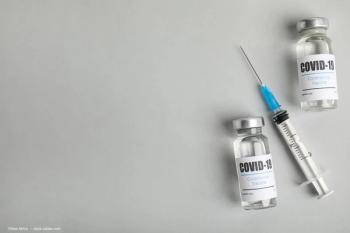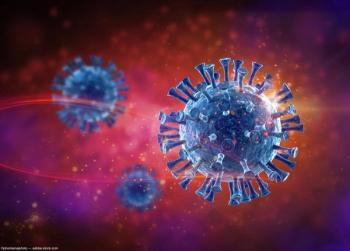
Roche receives CE mark for saliva-based COVID-19 test
The company continues to develop testing options that deliver accurate detection and correctly identify SARS-CoV-2 mutations to help patients and healthcare providers manage the evolving COVID-19 pandemic.
Roche today announced that its cobas SARS-CoV-2 Qualitative test has received CE mark for the use of saliva samples in the detection of SARS-CoV-2 on the high-throughput cobas 6800/8800 Systems.
According to the company, this non-invasive test is for any individual, including those suspected of COVID-19 and those without symptoms. Saliva sample collection represents a convenient testing approach for patients, who can easily self-collect their own samples.
"One of the key strategies to reduce COVID-19 transmission is to stop the silent spread of the disease early," Cindy Perettie, Head of Molecular Labs, Roche Diagnostics Solutions, said in a statement. "Expanding sensitive testing to include a non-invasive, easy-to-collect sample type such as saliva helps to improve access to screening for more people. This is crucial for public health and keeping our communities safe."
Due to the non-invasive nature of the test, it is a more tolerable experience for people who require frequent testing, such as those working in a high-risk environment. The test also provides patients with the option to self-collect their saliva sample on site, following the instructions of a healthcare professional. By reducing physical contact, this method of sample collection can help decrease the risk of exposure to the virus for healthcare professionals.
With the addition of saliva to the already available sample types of nasal, nasopharyngeal, and oropharyngeal swabs, Roche provides a broad range of testing options that deliver accurate detection of SARS-CoV-2, even in the presence of the Omicron variant, and can help patients and healthcare providers better manage the ongoing COVID-19 pandemic.
The cobas SARS-CoV-2 Qualitative test for use on the cobas 6800/8800 Systems is a real-time RT-PCR test intended for the qualitative detection of nucleic acids from SARS-CoV-2 in healthcare provider-instructed self-collected anterior nasal swab and saliva specimens (collected on site), and healthcare provider-collected nasal, nasopharyngeal, and oropharyngeal swab specimens collected from any individuals, including those suspected of COVID-19 by their healthcare provider, and those without symptoms or other reasons to suspect COVID-19.
Results are for the detection of SARS-CoV-2 RNA. The SARS-CoV-2 RNA is generally detectable in respiratory specimens during the acute phase of infection. Positive results are indicative of the presence of SARS-CoV-2 RNA but may not represent the presence of SARS-CoV-2 RNA; clinical correlation with patient history and other diagnostic information is necessary to determine patient infection status. Positive results do not rule out bacterial infection or co-infection with other viruses.
Negative results do not preclude SARS-CoV-2 infection and should not be used as the sole basis for patient management decisions. Negative results must be combined with clinical observations, patient history, and epidemiological information.
The cobas SARS-CoV-2 Qualitative test is intended for use by trained clinical laboratory personnel specifically instructed and trained in the techniques of real-time PCR and in vitro diagnostic procedures.
Newsletter
Don’t miss out—get Ophthalmology Times updates on the latest clinical advancements and expert interviews, straight to your inbox.





























